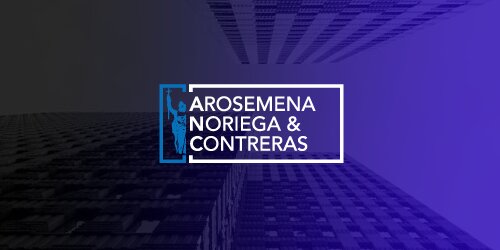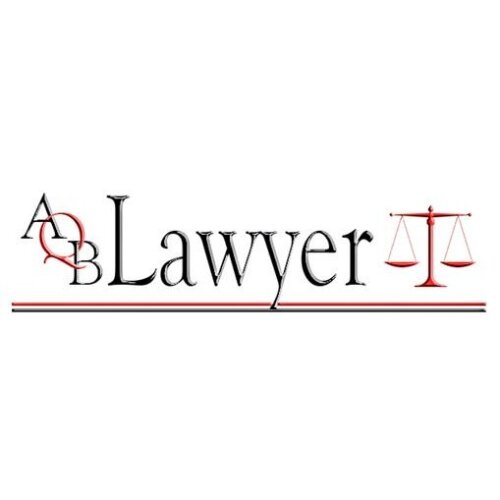Best Education Law Lawyers in Panama City
Share your needs with us, get contacted by law firms.
Free. Takes 2 min.
List of the best lawyers in Panama City, Panama
About Education Law in Panama City, Panama
Education Law in Panama City, Panama, encompasses a variety of legal issues related to the education system, including the rights and obligations of students, educators, schools, and government institutions. It is designed to ensure that the educational system delivers quality education and adheres to national education standards. The field covers topics such as educational equity, student rights, special education, and the governance of educational institutions. Regulatory frameworks provided by the Ministry of Education in Panama serve as foundational elements that guide the implementation of educational policies within the city.
Why You May Need a Lawyer
There are several scenarios in which individuals or institutions might require legal assistance in Education Law:
- Student Rights Violations: If a student’s rights are being violated within an educational setting, a lawyer can help navigate legal recourse.
- Special Education Needs: Parents of children requiring special education might need legal help to ensure proper accommodations and services.
- Teacher or Staff Disputes: Educators facing employment disputes with schools or educational institutions may seek legal advice.
- Non-compliance with Educational Standards: Schools not adhering to national educational standards may face legal challenges.
- School Governance Issues: Legal assistance might be necessary for resolving governance or administrative challenges within educational institutions.
Local Laws Overview
Panama’s education system is largely governed by national legislation that is implemented locally to fit specific community needs. Key aspects include:
- Constitutional Guarantees: Education is a right for all citizens, as mandated by Panama’s constitution, which stipulates that primary education is obligatory.
- General Education Law 47 of 1946: Serves as the backbone of Panama’s legal framework for education, covering everything from administrative structure to educational levels and teacher rights.
- Inclusive Education Policies: Recent regulations emphasize inclusive education to enable individuals with disabilities to receive proper education.
- Enforcement of Educational Standards: Local educational authorities ensure that institutions adhere to nationally set curriculum and teaching standards.
Frequently Asked Questions
What is the legal right to education in Panama?
Education is considered a fundamental right in Panama, starting from pre-primary to higher education, with primary education being compulsory and free.
What legal protections are available for students with disabilities?
Students with disabilities are provided with specific legal protections to ensure they receive adequate education, accommodations, and resources in compliance with inclusive education policies.
How can parents enforce their child's educational rights?
Parents can seek assistance from the Ministry of Education or consult with an education lawyer to address violations of a child’s educational rights.
Are there laws specific to private educational institutions?
Yes, private educational institutions are subject to regulations ensuring they meet national standards and provide quality education services.
What legal recourses are available for bullying in schools?
Victims of bullying can seek help through school channels. If unresolved, legal action can be pursued with assistance from a lawyer.
How are disputes between teachers and schools typically resolved?
Disputes often start with mediation or negotiation. If unresolved, they may proceed to legal action under employment law in the education context.
Does Panama have any laws regarding homeschooling?
Panama does not officially recognize homeschooling; formal education standards must be met through accredited institutions.
How do national laws address educational equity?
National laws aim to ensure equitable access to education resources and opportunities regardless of socio-economic status.
What are the legal obligations of educators in Panama?
Educators are obliged to deliver curriculum outcomes as per national standards and uphold the ethos of educational institutions while respecting students' rights.
How can institutions handle non-compliance with educational regulations?
Institutions can seek guidance from legal experts or regulatory bodies to address and rectify non-compliance issues effectively.
Additional Resources
For those seeking further information or assistance on Education Law in Panama City, Panama, the following resources may be helpful:
- Ministry of Education (MEDUCA) - Provides comprehensive information on national educational policies and standards.
- Education Ombudsman - Assists in addressing grievances related to educational rights and services.
- Legal aid clinics in Panama City - Offer support to individuals needing legal advice on education issues.
- NGOs focused on educational advocacy - Provide various support services for educational rights and inclusion efforts.
Next Steps
If you find yourself in need of legal assistance relating to Education Law in Panama City, consider the following steps:
- Identify the Issue: Clearly define your legal concern or the issue you're facing.
- Consult a Legal Expert: Seek advice from a lawyer specialized in Education Law to discuss your case and options.
- File Complaints as Necessary: For issues such as student rights or school mismanagement, filing a formal complaint may initiate the resolution process.
- Reach Out to Relevant Authorities: Contact bodies like the Ministry of Education for guidance or intervention when needed.
- Consider Mediation: In cases of dispute, mediation can be a valuable step before pursuing legal action.
Lawzana helps you find the best lawyers and law firms in Panama City through a curated and pre-screened list of qualified legal professionals. Our platform offers rankings and detailed profiles of attorneys and law firms, allowing you to compare based on practice areas, including Education Law, experience, and client feedback.
Each profile includes a description of the firm's areas of practice, client reviews, team members and partners, year of establishment, spoken languages, office locations, contact information, social media presence, and any published articles or resources. Most firms on our platform speak English and are experienced in both local and international legal matters.
Get a quote from top-rated law firms in Panama City, Panama — quickly, securely, and without unnecessary hassle.
Disclaimer:
The information provided on this page is for general informational purposes only and does not constitute legal advice. While we strive to ensure the accuracy and relevance of the content, legal information may change over time, and interpretations of the law can vary. You should always consult with a qualified legal professional for advice specific to your situation.
We disclaim all liability for actions taken or not taken based on the content of this page. If you believe any information is incorrect or outdated, please contact us, and we will review and update it where appropriate.














